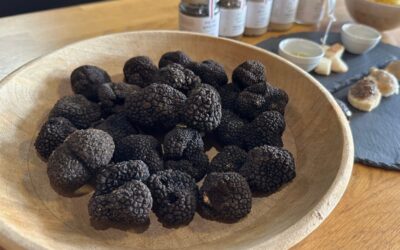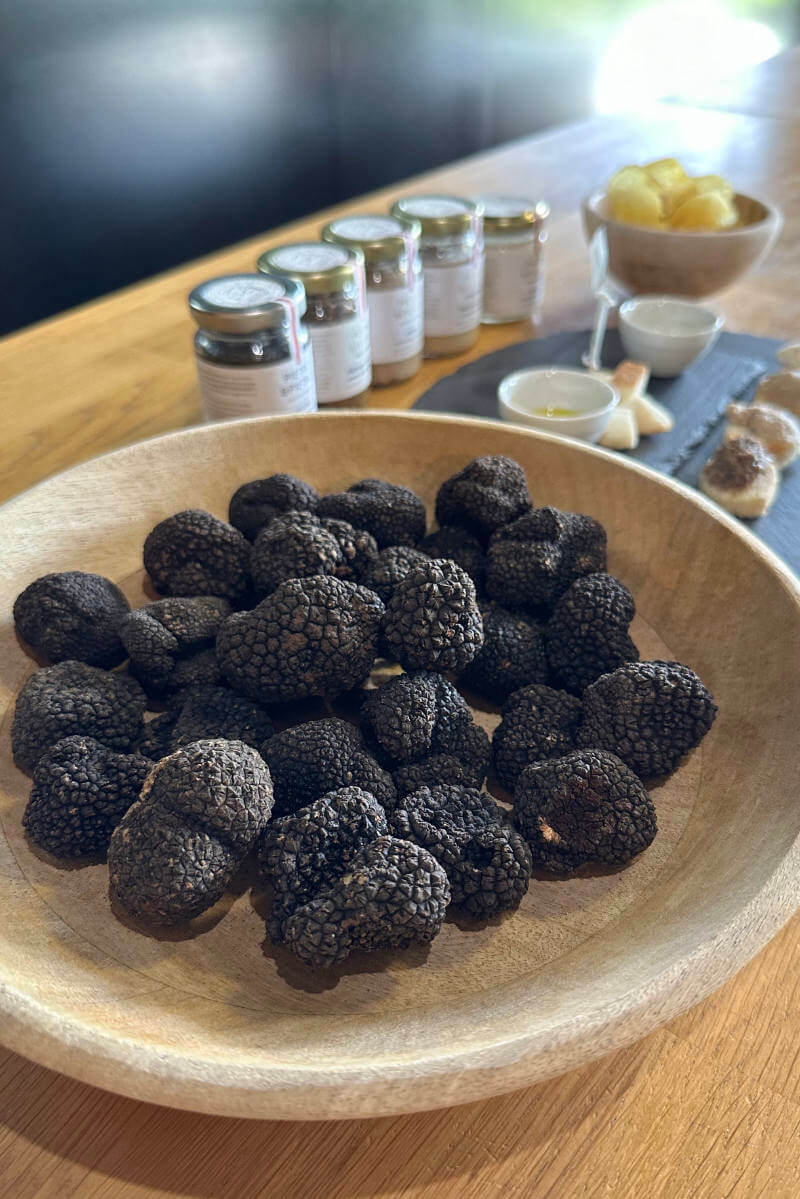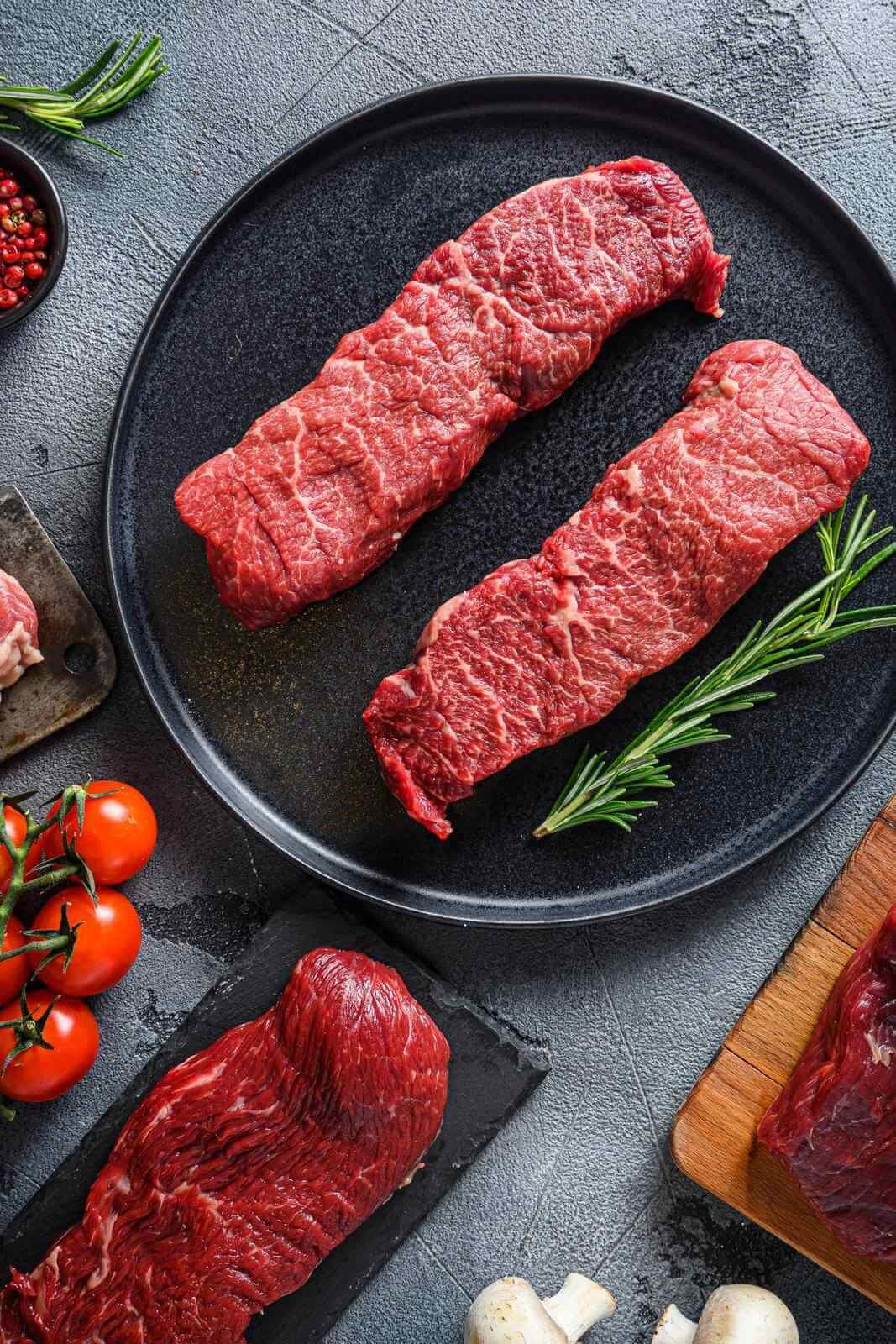We’ve heard it a million times – you are what you eat. Your skin is what you eat too. But does that mean focusing on eating foods good for your skin or drinking collagen will make your skin glow better than other healthy diets?
Foods best for your skin or body?
Skin is the biggest organ of your body. Knowing your skin health is correlated to your diet is a great step forward, but that doesn’t mean obsessing over foods that are claimed to make your skin healthy is a good idea.
What are the best foods for your skin? Let’s look at what some of the trusted websites, such as healthline, WebMD, Cleveland Clinic, BBC goodfood, and BYRDIE have to say.
In summary, the best foods for your skin are essentially foods high in
- Good oils or fats and omega-3s
- Antioxidants such as polyphenols and carotenoids
- Vitamin A, C, E, Zinc, Selenium
- Probiotics and prebiotics
- Low Glycemic Index carbs
- Anti-inflammatory properties
- Water
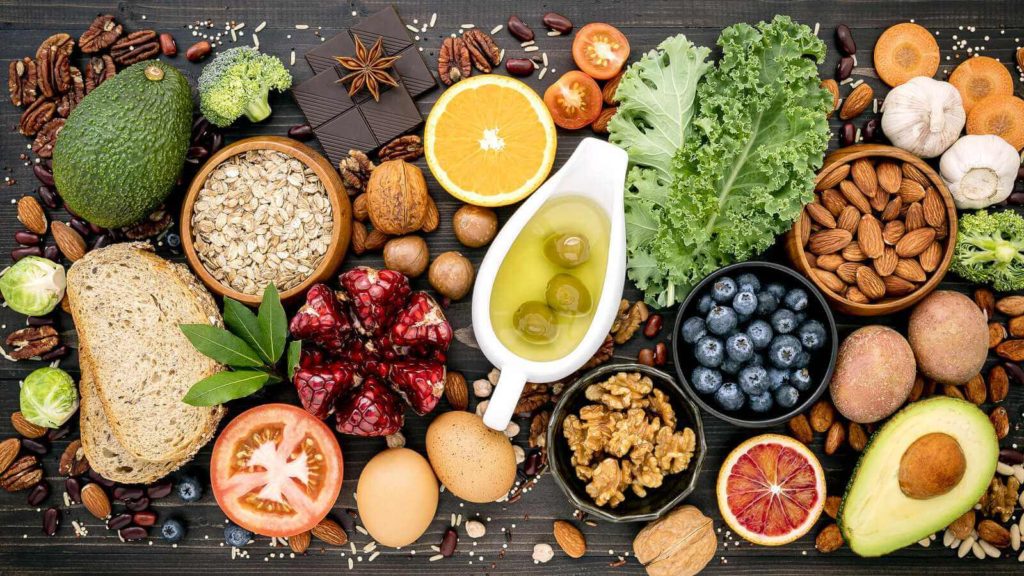
The collagen hype
It’s interesting that there’s not a single mentioning of collagen or collagen supplements in these ‘Best foods for your skin’ articles from these most trusted websites. Yet collagen powder is a very popular supplements for skin. So, is there added benefits in taking collagen powder?
I did not enjoy Biochemistry class in college, but I at least I learned the basic concepts about decomposition and synthesis. Long story short. The food we eat is broken-down in the digestive system through decomposition reactions. Then the body uses different recipes to put together ingredients for different cells and organs through synthesis reactions. This means, the collagen supplements we take doesn’t directly reappear in our skin cells, and it’s not the only ingredients needed in the chemical synthesis reactions.
Collagen is mainly composed of glycine, proline, hydroxyproline, hydroxylysine, additional (derivative) amino acids, vitamin C, enzymes, copper, etc.
If you want to get all scientific, the most common motifs in the amino acid sequence of collagen are glycine-proline-X and glycine-X-hydroxyproline, where X is any amino acid other than glycine, proline or hydroxyproline.
This means, if you are looking for a dietary shortcut to a collagen pumped skin, the collagen peptides supplements are easier to absorb and its amino acids profile is good for collagen only. However, added benefits compared to complete protein powder or delicious high quality protein is questionable. Side effects of collagen supplements also need to be considered.
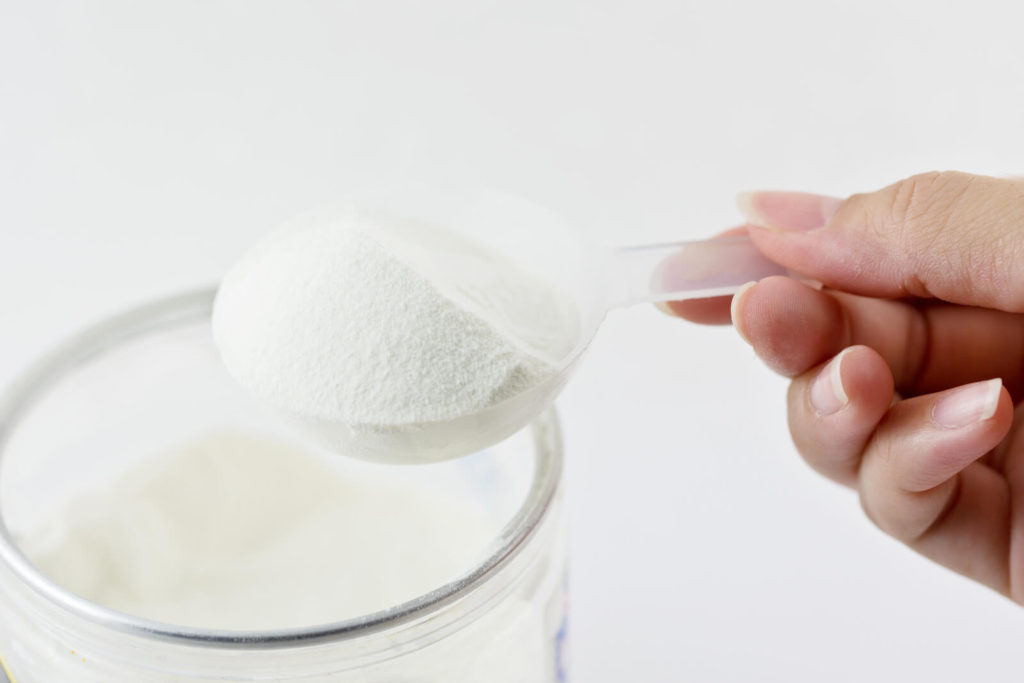
Don’t mess around the delicate balance
Our bodies are ecosystems. It hangs in a delicate balance. Side effects resulting from a change may become observable clinical symptoms when it’s already too late.
Are you consuming too much protein?
If you take collagen supplements without any change to your diet, how’s your body responding to the extra protein consumption?
What about amino acids for other parts of your body?
If you increase collagen peptides intake for your skin and reduce other protein intake, do you have enough appropriate amino acids for other parts of your body? They have a different amino acid profile than collagen.
Taking co-factor supplements for collagen synthesis?
If you take high doses of copper for collagen synthesis, it may lead to zinc deficiency, because copper and zinc compete with each other for binding sites on our cells for absorption. And zinc is good for your skin health and overall health too.
In clinical trials, for safety, we have to constantly monitor body chemistry for chemical-based treatments and additional immunogenicity for protein-based treatments. All interventions to our bodies come with both benefits and risks. Supplements are not exceptions. On top of that, the benefit-risk profile is very individualized.
When in doubt, consult a good nutritionist for your own unique circumstances. Playing a Google Doctor is generally not advised, but don’t be afraid to ask meaningful questions.
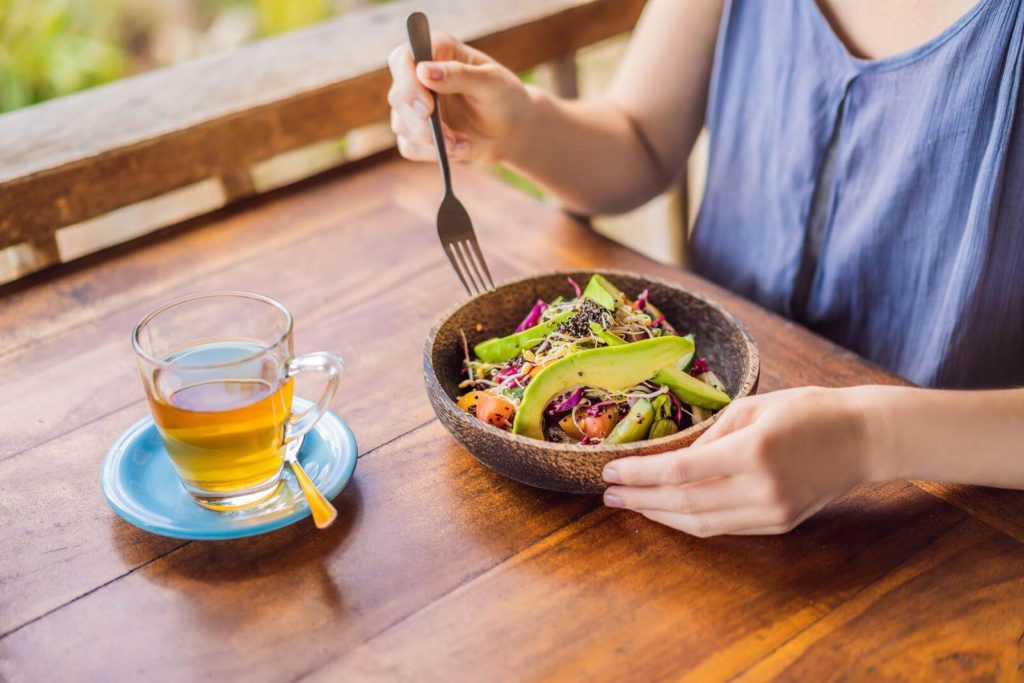
Everything is connected
If you want to eat your way to beautiful skin, did you check your gut health first? Optimal digestion and absorption is key to deliver essential nutrients from food and supplements to your body and skin.
Diet is not the only thing that affect your skin health significantly. Skincare and sun protection are no brainers. Those that are already eating healthy may notice how much the lack of sleep and stress affect their skin too, perhaps more than the incremental improvement they can make in their diet. Those who increase exercises may notice how exercises improve blood circulation and therefore the process to repair and rejuvenate skin.
Healthy skin is a byproduct of a healthy body
The bottom line is, radiant skin is really just a byproduct of all the healthy and balanced habits to achieve and maintain a healthy body. Shortcuts and obsessions may lead to side effects. A long term well-established healthy lifestyle is key to a resilient body and skin. I am a living proof. My skin is naturally prone to eczema and some other inflammations, and often basked in the sun and salt water. If I can maintain youthful skin without a special diet or botox, you can too.






